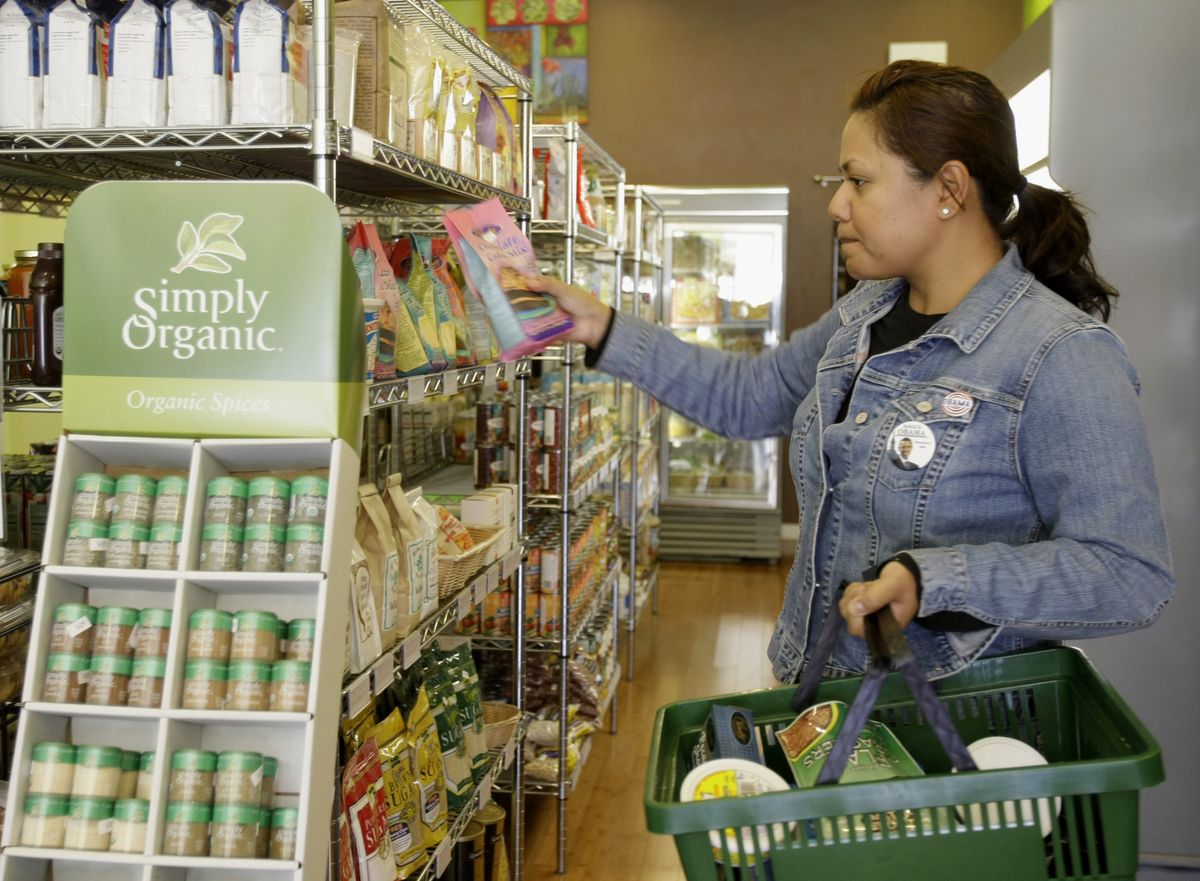Green grocers feel pinch
Sales of organic food products flatten as customers become more selective

CHICAGO – The rotten economy is eating into sales of organic foods as fewer Americans put these often costly groceries on their plates.
Retired school administrator John Frantz recently lost his appetite for organic fruits and vegetables after watching the value of his 401(k) plummet to its lowest level in two years. “I’m probably spending 10 to 15 percent less on groceries than six months ago,” said Frantz, 58, of Chicago.
Likewise, Julie Hennessey of West Bloomfield, Mich., no longer buys organic bananas – “you peel them, anyway,” she says – and now gives a good soaking to less expensive, conventionally grown strawberries to remove any pesticides.
“I didn’t look at prices two years ago,” Hennessey concedes, though with her husband an engineering manager in the beleaguered auto industry and the country in a recession, the family’s not feeling as financially secure.
Sales figures show that shoppers are having second thoughts about the value of organic foods, particularly fruits, vegetables and meats. But they’re not giving up entirely on these products. Hennessey said she still pays a premium for organic cereal and eggs for her 4-year-old daughter, and Frantz said he splurges on organic eggs and dairy products.
Overall sales of organic food are still rising, though the industry’s robust growth of recent decades is tapering off, analysts said.
Cassie Green, owner of Green Grocer Chicago, says her sales have been flat in recent months, following a period of steady growth when the store opened in January. “The same amount or more of people are coming in, but they’re buying less,” Green said.
Market research firm NPD Group said the number of people who reported buying organic products fell 4 percent in August, compared with a year earlier. While more than one in five surveyed in the latest figures available from NPD purchased organic products, the August data represented the first customer losses for the sector since February 2006 – a decline that is expected to accelerate in the months ahead.
Many devotees of organic foods are not willing to cut back.
“I think you get what you pay for,” said David Gentry, 42, who shops at Green Grocer Chicago at least two times a week for organic cheese, milk and produce.
That kind of loyalty to the organic foods movement helps explain why Hain Celestial Group Inc. of Melville, N.Y., which owns the Arrowhead Mills, Health Valley and dozens of other organic food and product labels, reported a $7 million profit in the quarter that ended Sept. 30 as sales grew 22 percent.
Stonyfield Farms, a privately held Londonberry, N.H.-based company that sells organic yogurt and milk, is experiencing slower growth, but the company’s CEO, Gary Hirshberg, tries to keep things in perspective.
“Anybody else would be envying our growth” given current economic conditions, Hirshberg said.
Despite the challenges, the Organic Trade Association forecasts sales of organic foods will rise by 18 percent a year, on average, through 2010. The association expects its customer base to grow on the assumption that prices will drop and mainstream retailers will stock a wider variety of products.
To keep their customer bases from shrinking further, organic brands are spending more on promotions. For example, Earthbound Farm is issuing more coupons, while Annie’s is boosting its magazine advertising.
Organic sales – not including store brands or bulk sales – were forecast to grow by 14 percent in 2008, compared with increases of 16 percent in 2007, 22 percent in 2006 and 21 percent in 2005, according to market research firm Mintel International.
A July 2008 survey found that among customers who reported buying organic products, 56 percent had household incomes of more than $100,000, according to Marcia Mogelonsky, a senior research analyst at Chicago-based Mintel. Thirty-six percent had incomes of less than $25,000.